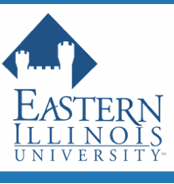Welcome and Keynote with Dr. Lorenzo DuBois Baber
Start Date
16-10-2020 8:00 AM
End Date
16-10-2020 8:50 AM
Document Type
Presentation
Abstract
Beyond Diversity: The Promise of Critical Social Justice Frames for Higher Education
Emphasizing the value of representation on campus, many leaders in higher education have focused on compositional diversity as a first and final goal for improving campus climate for students from underrepresented backgrounds. While the presence of a critical mass is a significant step towards institutional transformation, its value is diminished without a deeper directive that critiques and dismantles structural practices which maintain domination/subordination scripts in higher education. The purpose of this presentation is to consider the various approaches that have limited purposeful change on college campuses – from assimilation to post-racialism – and encourage scholar-practitioners to embrace the nuanced, challenging perspective of a social justice educator.
Creative Commons License

This work is licensed under a Creative Commons Attribution-Noncommercial-No Derivative Works 4.0 License.
Welcome and Keynote with Dr. Lorenzo DuBois Baber
Beyond Diversity: The Promise of Critical Social Justice Frames for Higher Education
Emphasizing the value of representation on campus, many leaders in higher education have focused on compositional diversity as a first and final goal for improving campus climate for students from underrepresented backgrounds. While the presence of a critical mass is a significant step towards institutional transformation, its value is diminished without a deeper directive that critiques and dismantles structural practices which maintain domination/subordination scripts in higher education. The purpose of this presentation is to consider the various approaches that have limited purposeful change on college campuses – from assimilation to post-racialism – and encourage scholar-practitioners to embrace the nuanced, challenging perspective of a social justice educator.





Speaker Information
Dr. Lorenzo DuBois Baber
Lorenzo DuBois Baber is an Associate Professor and Program Chair of Higher Education at Loyola University Chicago. Dr. Baber's scholarly interest broadly examine equity and social justice in post-secondary education. His research foci include leadership within community college contexts; experiences of minoritized students in post-secondary STEM education; and use of critical theory to inform higher education policies and practices.
Dr. Baber is the author of nearly forty journal articles, book chapters, and policy reports. He has participated on research teams that have collectively secured over $5 million in grant funding. His scholarship has been published in leading higher education journals and featured in public spaces, including the National Science Foundation website and National Public Radio (NPR). Dr. Baber has served on over 60 doctoral dissertations committees and chaired 18, including on that was awarded the 2017 Outstanding Dissertation of the Year from the American Association of Hispanics in Education (Author, Dr. Renata Alejandra Revelo Alonso). He has taught sixteen different course topics in higher education.
Dr. Baber is an active member of the Council for the Study of Community Colleges (CSCC), the Association for the Study of Higher Education (ASHE), and the American Educational Research Association (AERA). He currently serves as an elected member of the CSCC Conference Selection Site committee; and member of the 2020 CSCC conference program committee.
Dr. Baber holds a Ph.D. in Education Policy Studies (with an emphasis in Higher Education and cognate in Sociology) from Pennsylvania State University. Prior to joining faculty at Loyola University Chicago, he held tenure-line faculty appointments at Iowa State University and the University of Illinois, Urbana-Champaign. Dr. Baber has professional experience as a mid-level administrator in Undergraduate Admissions, Multicultural Affairs, and Residence Life. He proudly hails from Greensboro, North Carolina.